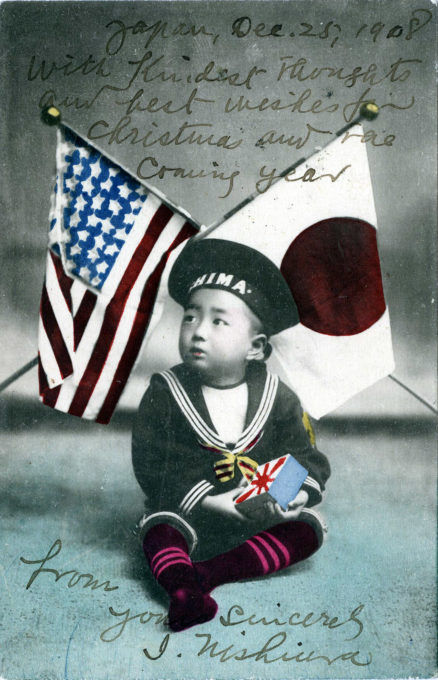
Japan-US relations, c. 1908. “With fondest thoughts and best wishes for Christmas and the coming year.”
See also:
Russo-Japanese War (1904-1905).
Anglo-Japanese Alliance, c. 1905
Secretary of War Howard Taft & First Daughter Alice Roosevelt in Japan, 1905.
“The Russo-Japanese War [1904-1905] … marked the moment when America and Japan began to directly face each other across the Pacific as two young and powerful nations.
“Japan’s rise to prominence transformed its relationship with the United States from a more manageable student-mentor relationship to one that was much more complex and reflective of geostrategic realities. One event that epitomized this shifting relationship was the creation of a military operation plan by the US Joint Army and Navy Board known as War Plan Orange.
“… Ironically, the war plan toward Japan revealed that the United States lacked the naval capability to defend its interests in Asia. This highlighted the importance of partnering with Japan as a way to defend the Philippines, which [Theodore] Roosevelt aptly described in 1907 as ‘America’s Achilles Heel’. In contrast to China, which was falling into an abyss of chaos, Japan was perceived as a stabilizing force in the region. Roosevelt therefore had no qualms over Japan establishing its own sphere of influence as long as it adhered to the Open Door policy [vis-a-vis China] and respected American interests in the region.
“As a realist, Roosevelt felt that a great power such as Japan was also entitled to its own sphere of influence. This understanding was clearly reflected in the Taft-Katsura agreement* of July 1905.”
– The History of US-Japan Relations: From Perry to the Present, edited by Makoto Iokibe & Tosh Minohara, 2017

